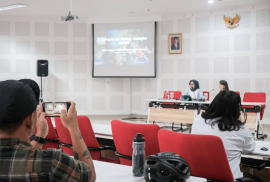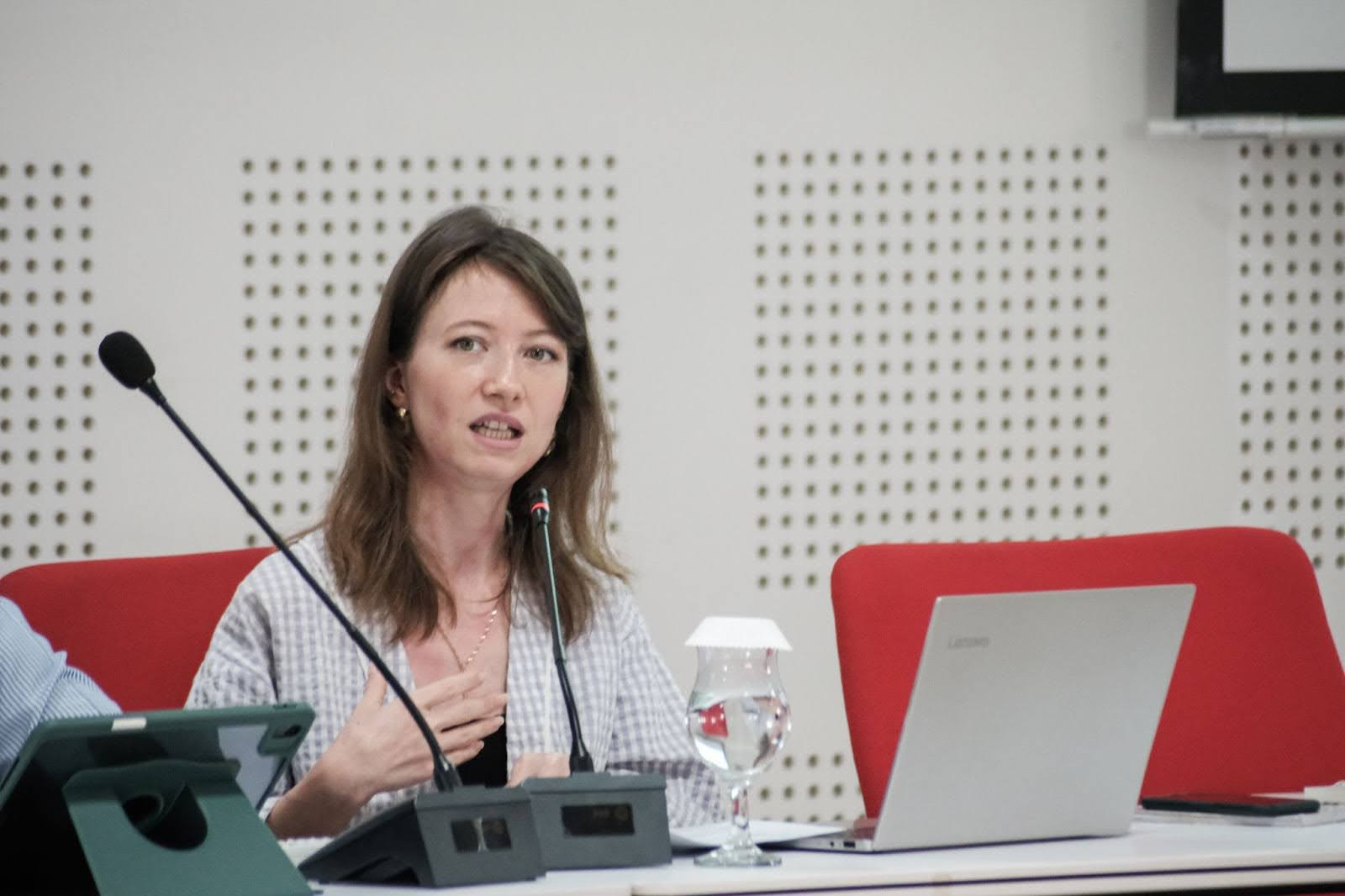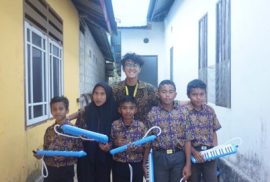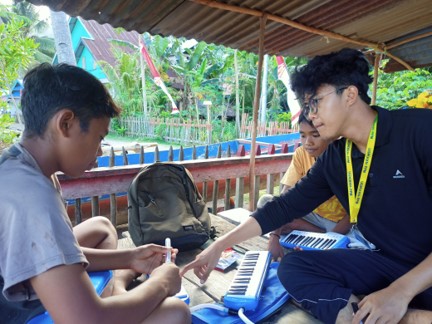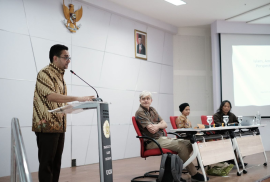Thursday, August 29, 2024 became a very happy day for the Faculty of Cultural Sciences, Universitas Gadjah Mada. A total of 244 students of the Faculty of Cultural Sciences UGM undergraduate program have successfully completed their education in higher education. A total of 244 graduates of the Faculty of Cultural Sciences UGM hold a new title as a Bachelor.
This graduation period is a very special period in its history, which is the graduation period with the largest number of graduates. Because of this, this graduation was held in parallel, centered in the Soegondo Auditorium Room and connected to several other rooms on the same floor, namely the 7th floor of the R. Soegondo Building, Faculty of Cultural Sciences, Universitas Gadjah Mada.
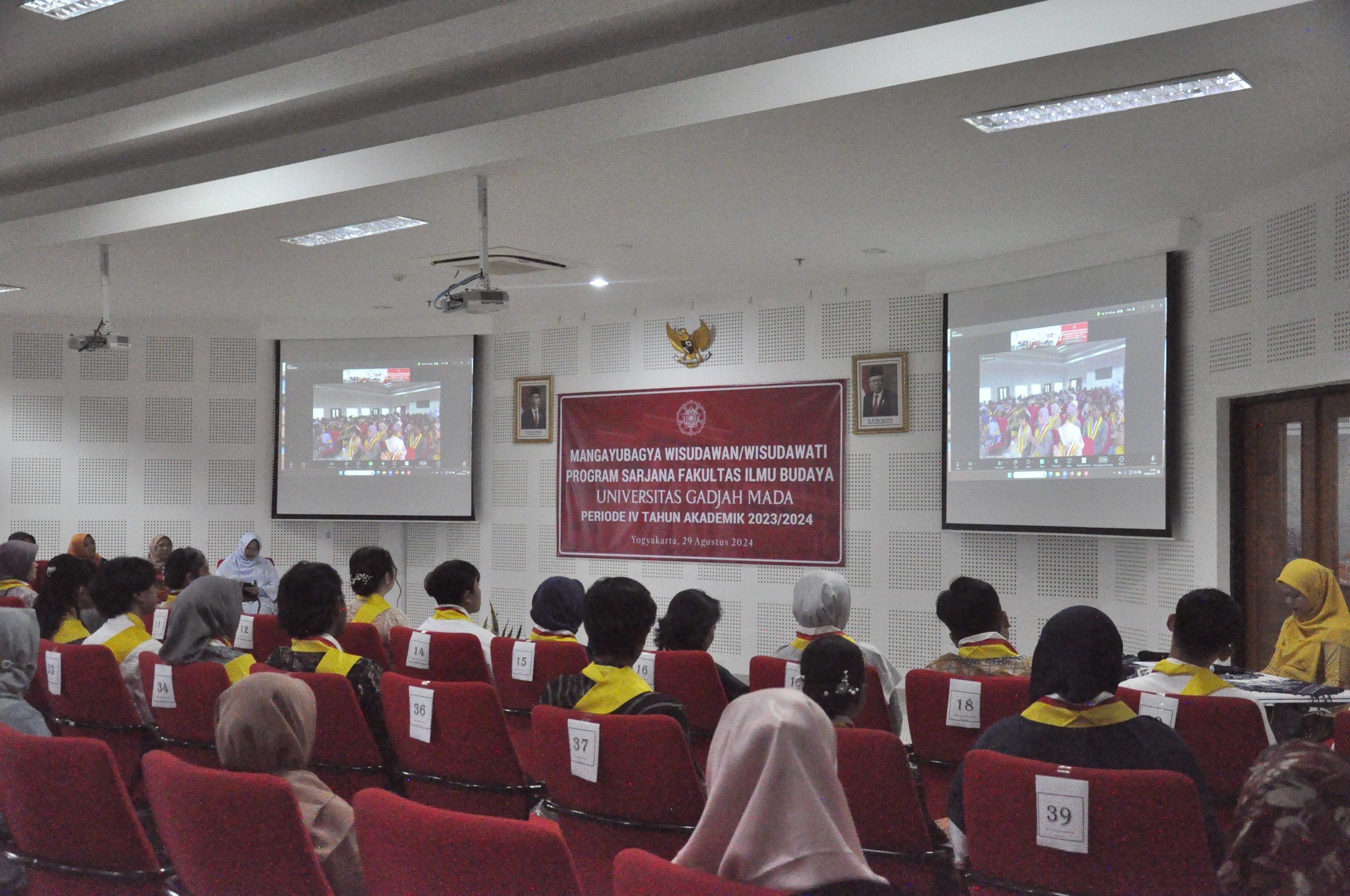
Photo 1: Parallel Room of Undergraduate Graduation of Faculty of Humanities Period IV Academic Year 2023/2024
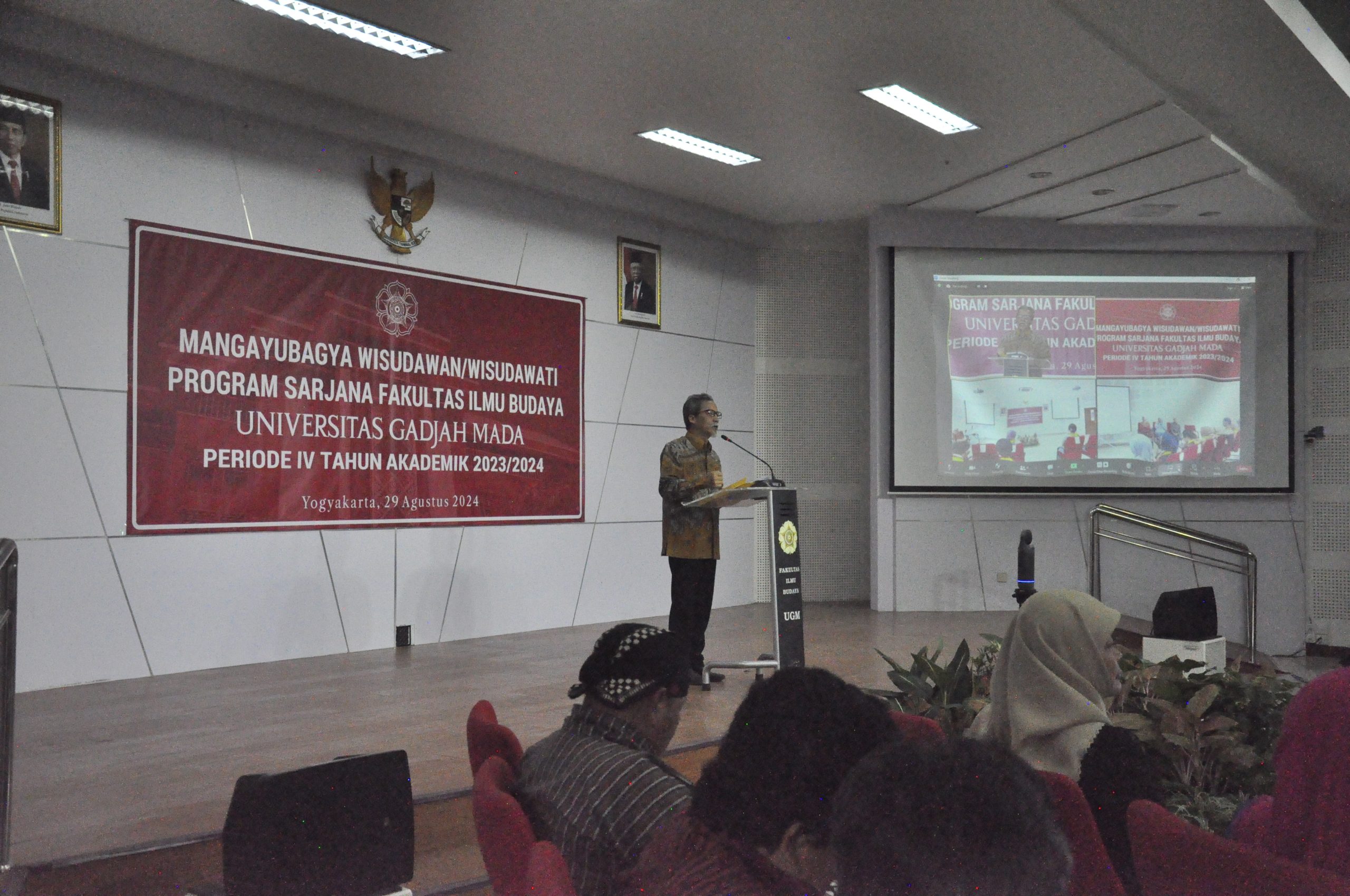
Photo 2: Dean of Faculty of Humanities UGM gives a welcoming speech
The graduation ceremony was attended by the Dean of the Faculty of Cultural Sciences UGM, Prof. Dr. Setiadi, S.Sos., M.Si., Vice Dean for Academic and Student Affairs, Dr. Nur Saktiningrum, S.S., M.Hum. Vice Dean for Finance, Assets, and Human Resources, Suray Agung Nugroho, S.S., M.A., Ph.D and representatives from each department and study program at the Faculty of Humanities.
In this graduation period, Valentino Yovenky Ardi Bentarangga, a student of the Cultural Anthropology Study Program achieved the highest GPA of 3.95 with a length of study of 3 years, 10 months; followed by Emily Trisnandi with a GPA of 3.94 from the English Literature Study Program with a length of study of 3 years 10 months.
The event was opened by singing Indonesia Raya, Gadjah Mada Mars, and Mars Sastra by Paramadaya. Then the dean of the Faculty of Cultural Sciences UGM, Prof. Dr. Setiadi, S.Sos, M.Si., delivered a welcome speech. In his speech, Setiadi congratulated the graduates and graduates, besides that he also conveyed several messages for graduates and graduates to continue their journey even though they had completed their studies and won a bachelor’s degree. The event was also enlivened by the entertainment performance of Geol Denok Dance by Ratnaraya Jawa, Javanese Literature Students. The next event was the handover of graduation documents in the form of diplomas and academic transcripts to graduates. In closing, a prayer was read by Mr. Hamdan, S.S., M.A.
Congratulations to all graduates! A bright future awaits you!

